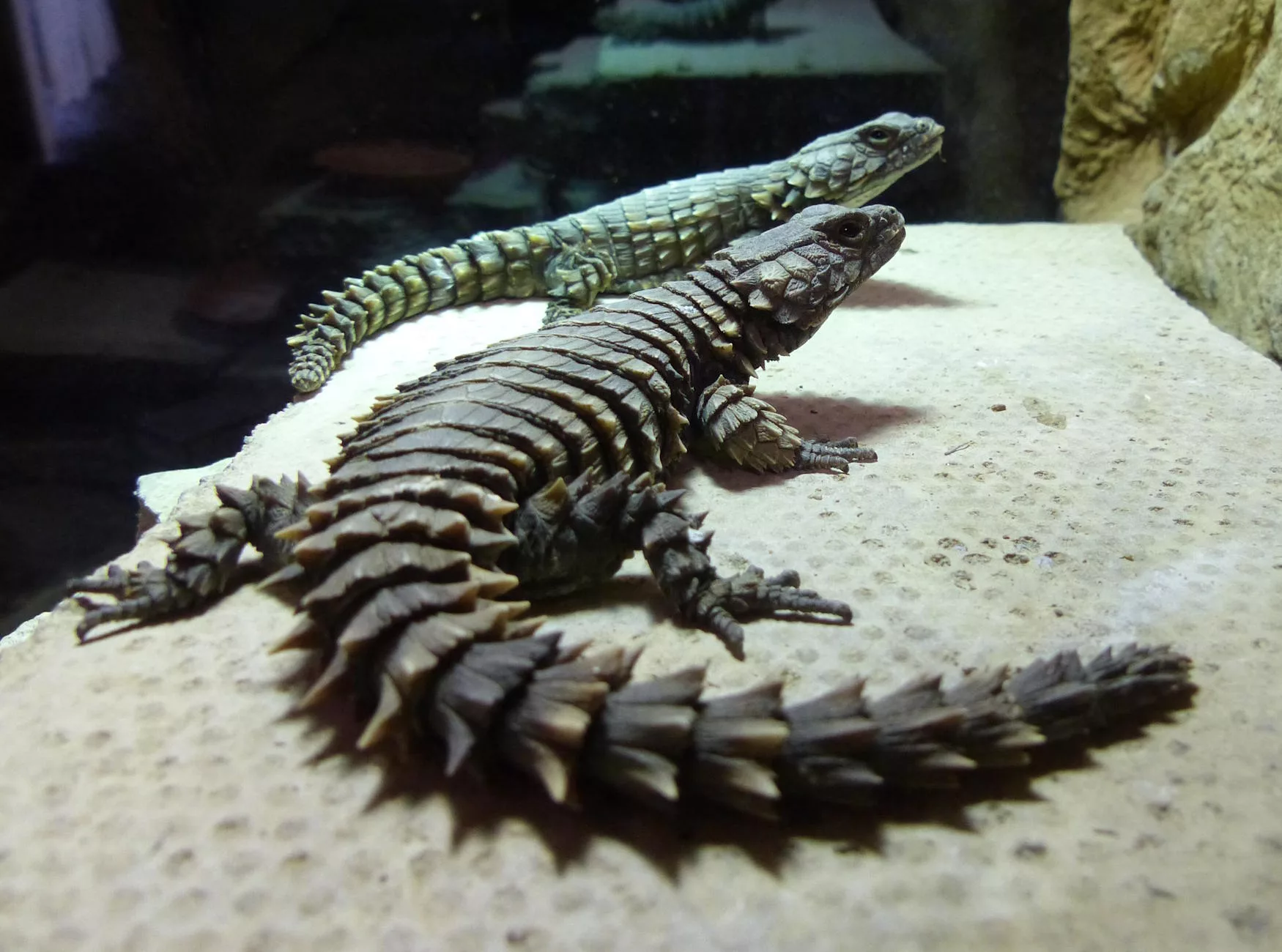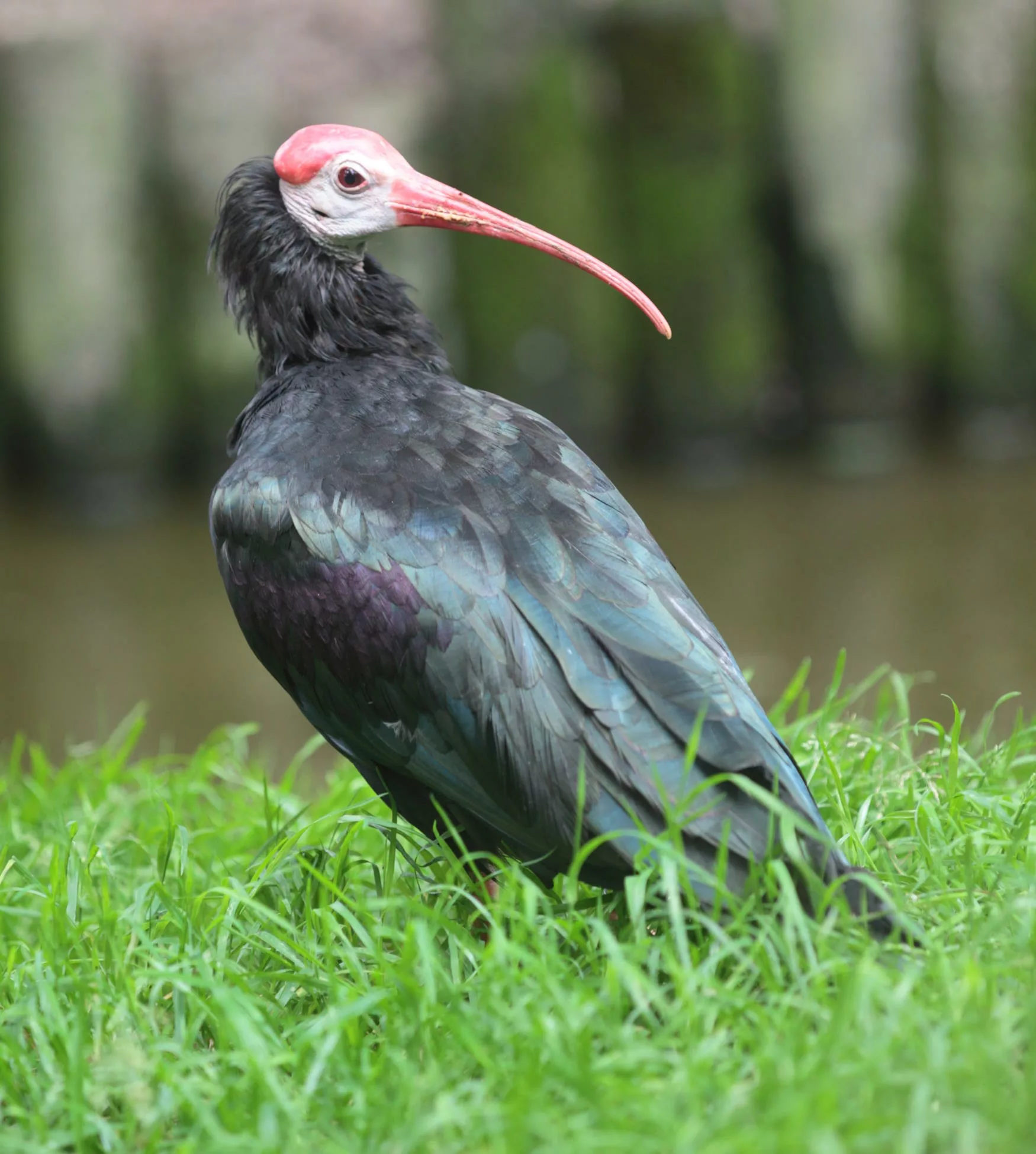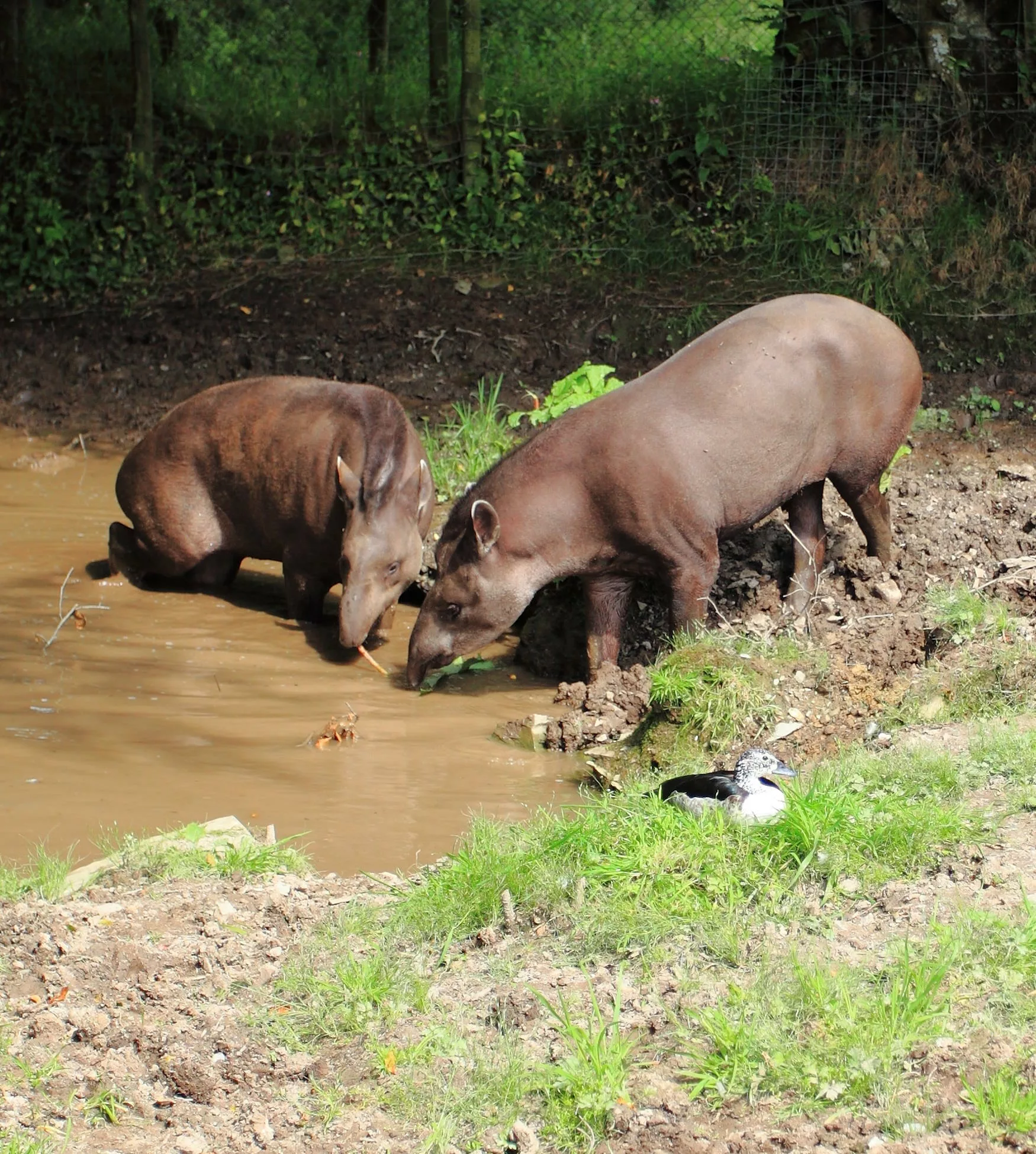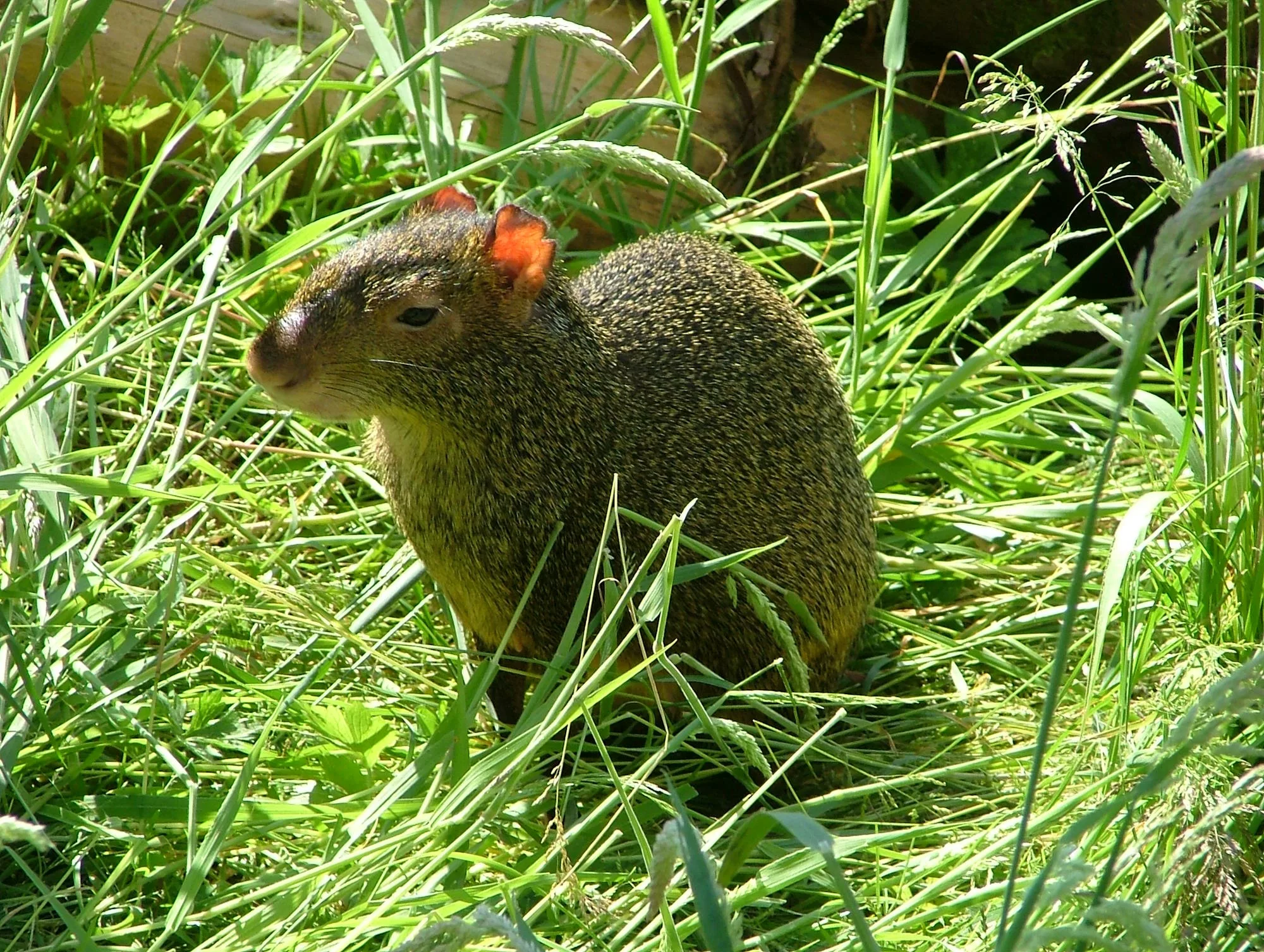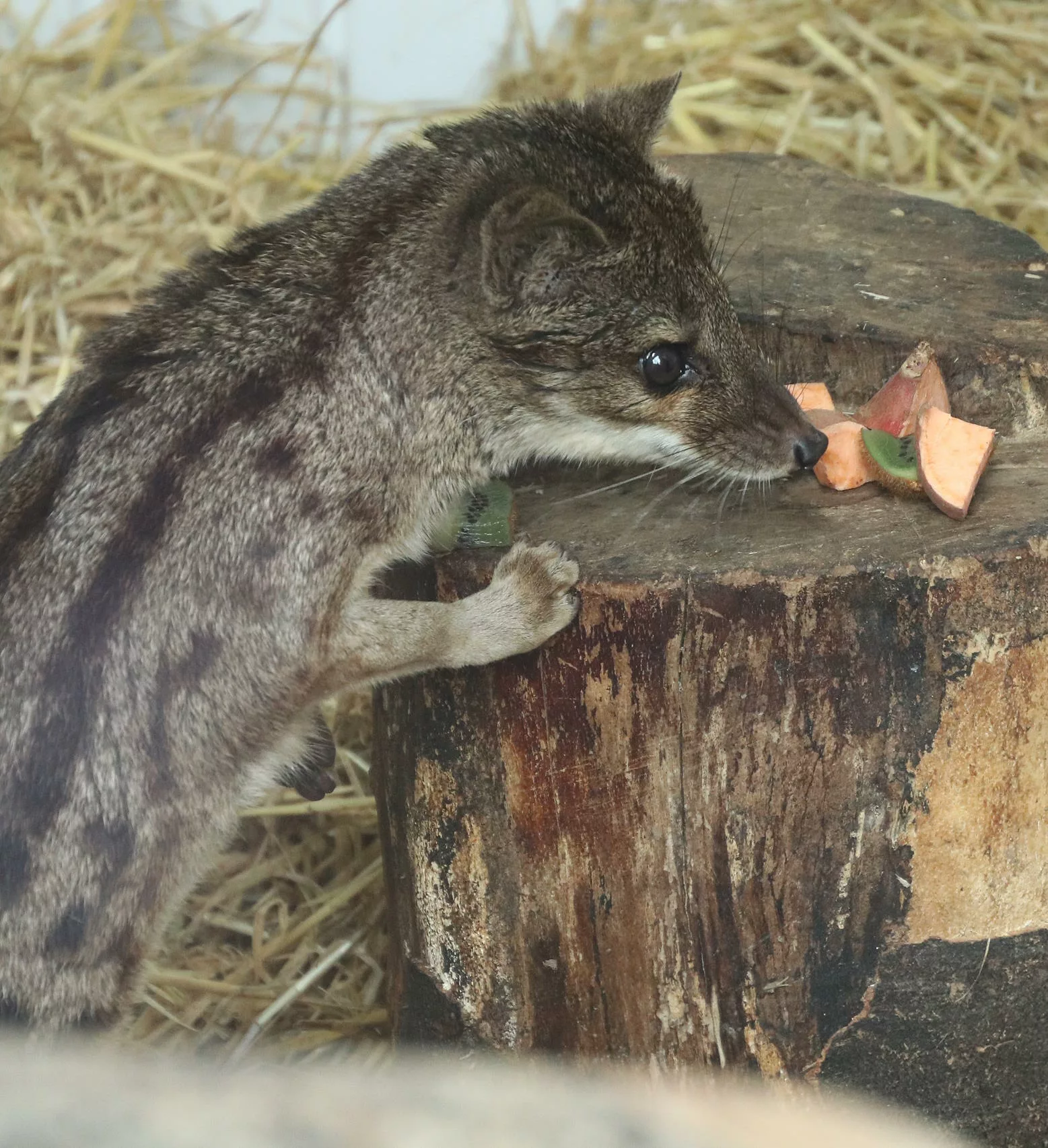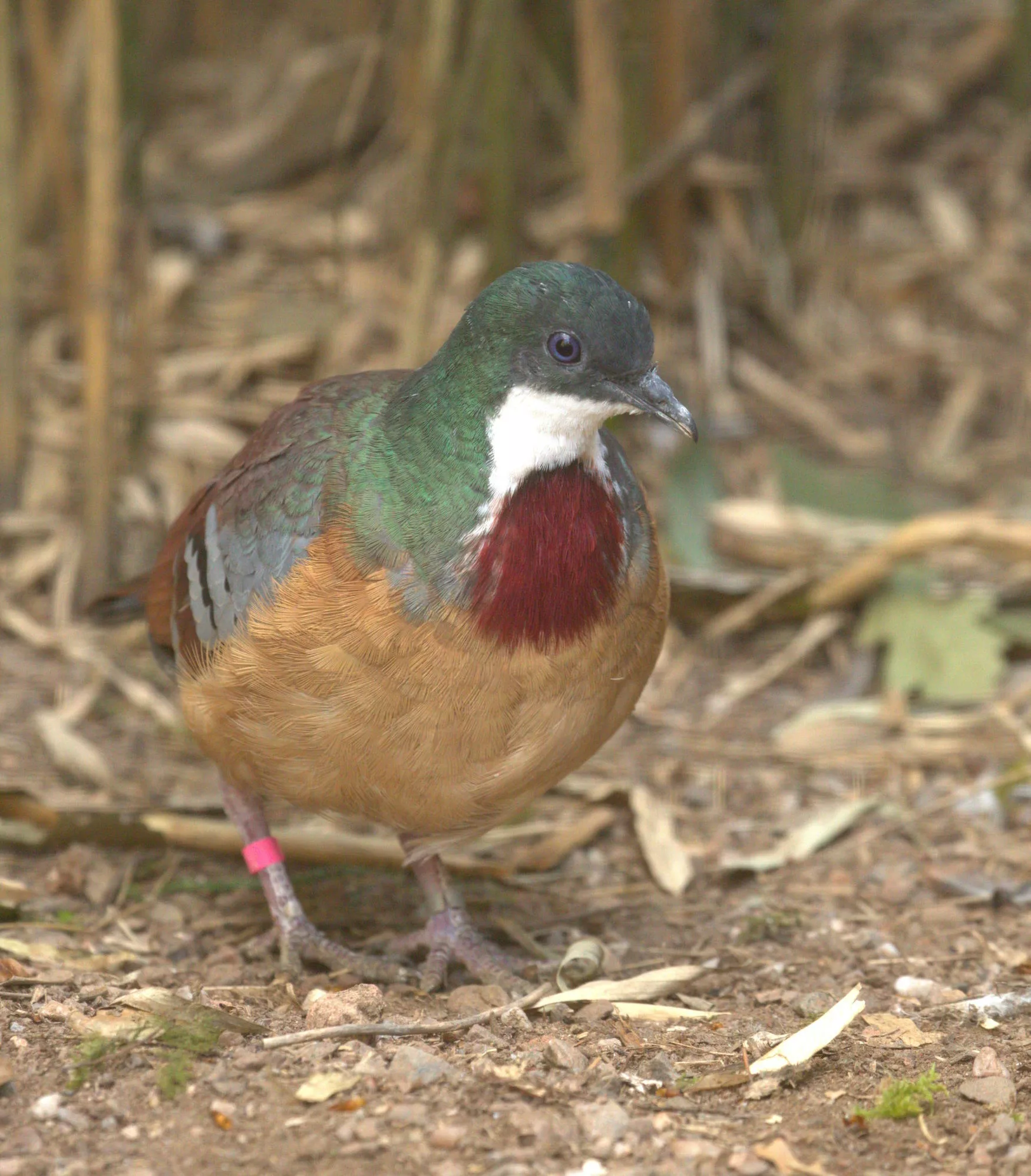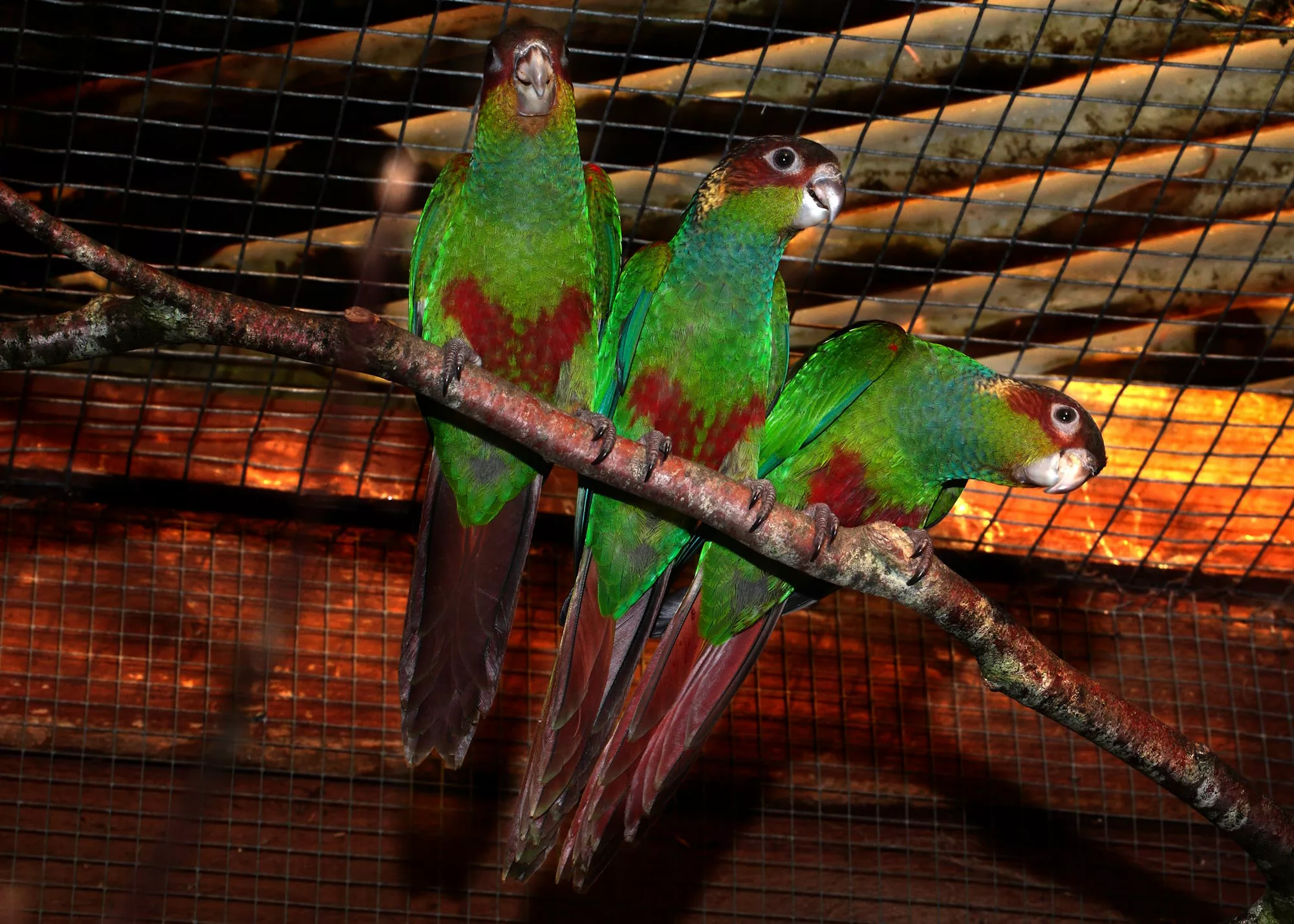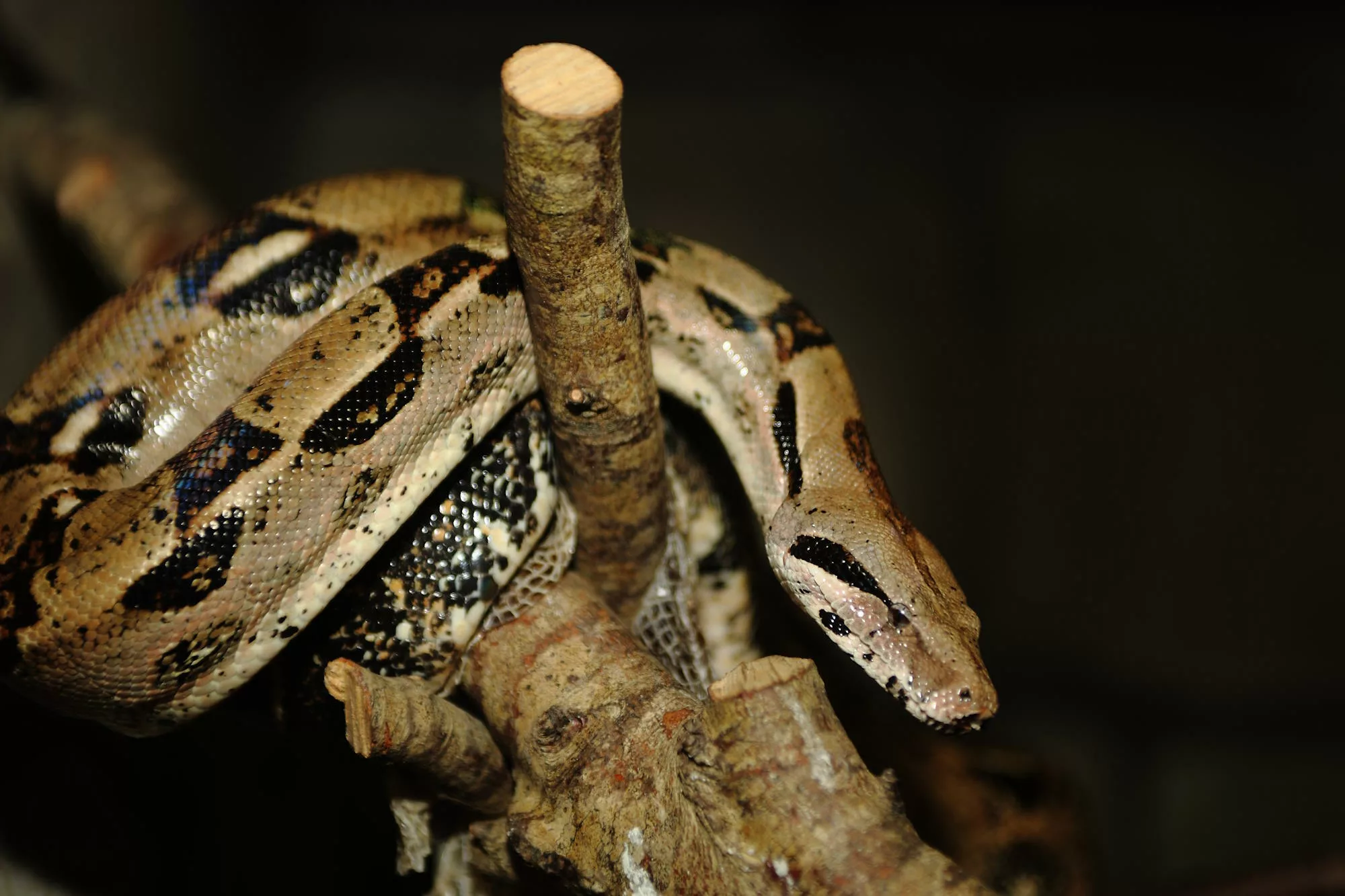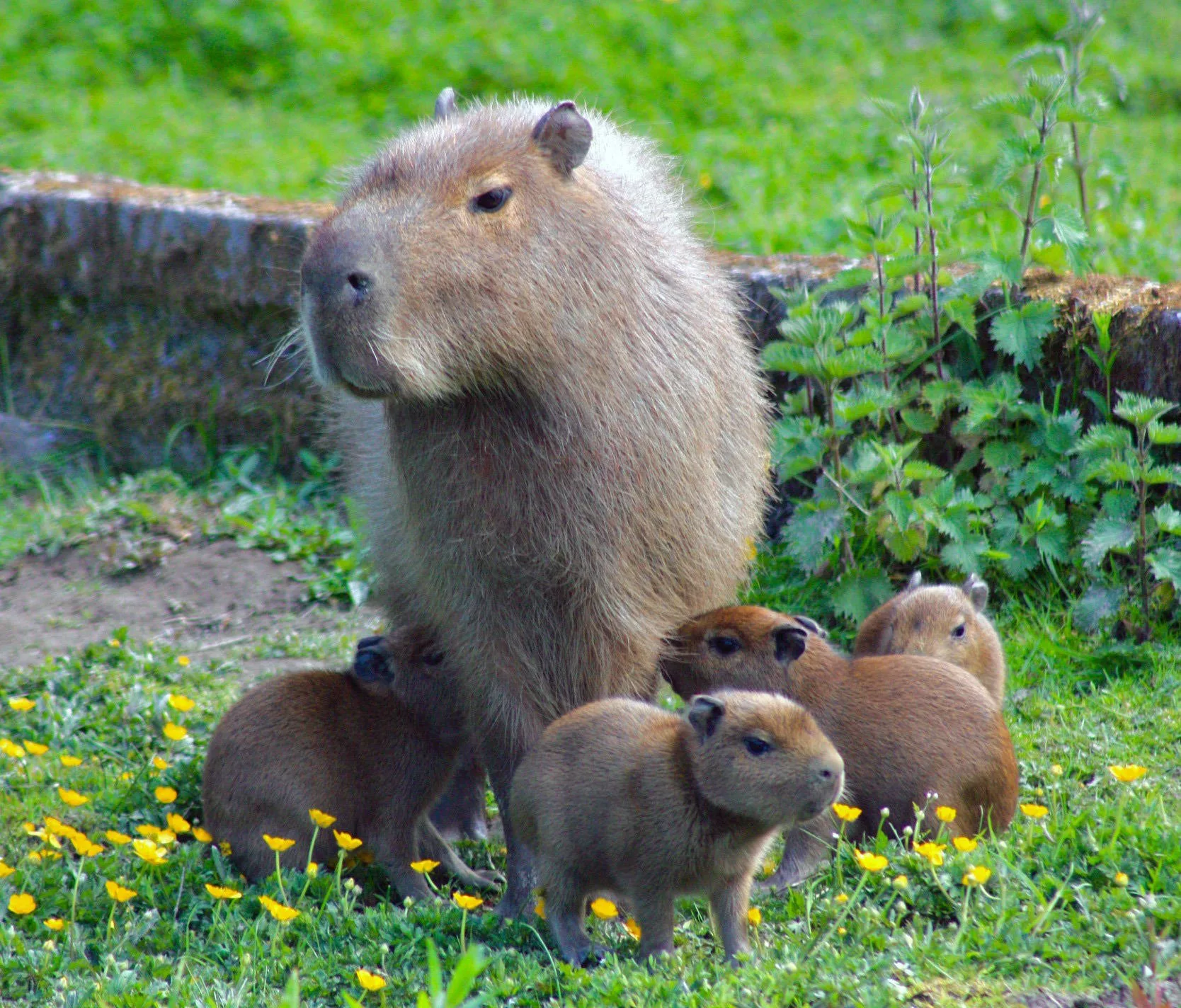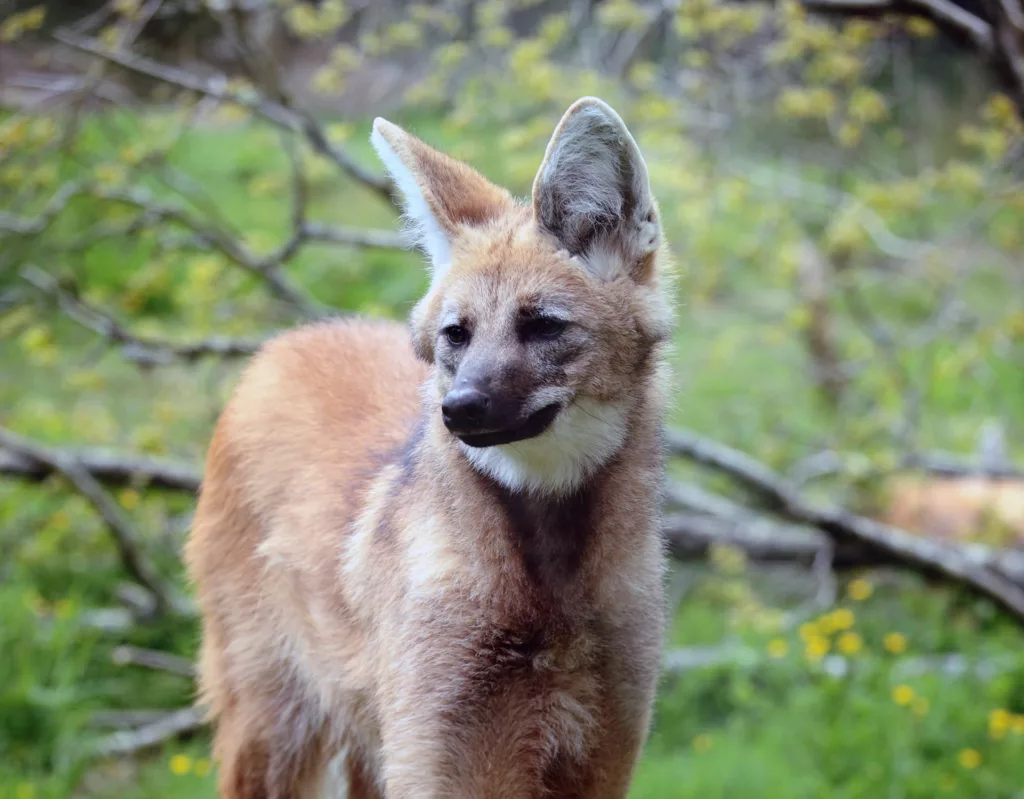
Maned wolf
Scientific name: Chrysocyon brachyurus
IUCN listed as: Near Threatened
Learn before you visit!
Here are some facts about the species – Discover what they eat, find out about their natural habitat, see what they like to do, and more… Set the reading style to suit you too, everyday speak or something aimed towards children.
Child-friendly
Everyday
Diet
Maned wolves primarily eat fruits, especially those of the Solanum genus, as well as small mammals, insects, and vegetable matter like roots and tubers. Despite their name, they don’t hunt large prey but are specialized foragers, relying on their keen sense of smell to find food in grassland habitats.
Maned wolves love to eat fruits like tomatoes and small animals like rodents. They also munch on insects and plants like roots and tubers. They’re like nature detectives, using their super sniffers to find yummy treats in the grasslands where they live.
Breeding
Maned wolves breed once a year, typically between April and June, and the parents raise the pups together. After a gestation period of about two months, the female gives birth to a litter of usually two to six pups in a den. Both parents care for the pups, teaching them survival skills before they leave the family unit after about a year.
Maned wolves have babies once a year, usually in April to June. The mom and dad take care of the pups together. After about two months, the babies are born in a den, and they stay with their parents for about a year to learn how to survive before going off on their own.
Habitat
Maned wolves inhabit grasslands and scrub forests across South America, particularly in countries like Brazil, Argentina, and Paraguay. They prefer areas with tall grasses and sparse tree cover, providing them with ample space to move and hunt. Additionally, these habitats often include regions near water sources like rivers and marshes, which offer additional food and shelter for the wolves.
Maned wolves live in grassy places in South America, like Brazil and Argentina. They like spots with tall grass and not too many trees. Sometimes, they also hang out near rivers or marshes, where they can find food and a cosy home.
At the zoo
In UK zoos, maned wolves are carefully looked after to ensure their well-being. They live in spacious enclosures with natural features like grassy areas and bushes, resembling their native habitats in South America. Their diet includes a mix of meat and vegetables to keep them healthy and strong. Enrichment activities such as scent trails and hiding food encourage natural behaviours and keep them mentally stimulated. Additionally, zoos participate in conservation programmes to support the preservation of wild maned wolf populations and their ecosystems.
In UK zoos, maned wolves are well cared for. They have big spaces to live in with lots of grass and bushes, like their homes in South America. They eat meat and veggies to stay healthy and strong. Zoos also give them fun things to do, like following scent trails and finding their food. People also work hard to help protect wild maned wolves and their homes.
Behaviour
Maned wolves are usually solitary and active during dawn and dusk. They roam their territories, foraging for fruits and small animals using their keen sense of smell. Despite being solitary, they are not territorial and often share their home ranges with other wolves.
Maned wolves like to be alone and are most active in the early morning and evening. They wander around looking for fruits and small animals to eat, using their nose to find them. Even though they’re on their own, they’re friendly and share their home with other wolves.
Fun facts
- Fox-like Look: Maned wolves have a red, bushy coat and long legs.
- Fruit Fans: Despite being called wolves, they love munching on fruits like guavas.
- Big Feet: Their oversized feet help them walk through tall grasses.
- Lone Rangers: Unlike other wolves, they prefer to wander alone most of the time.
- Bark Talk: They communicate with loud barks to mark territory and chat with others.
- Maned Magic: With red fur and long legs, they’re like fox-deer hybrids.
- Fruit Fans: Despite being called wolves, they love munching on fruits.
- Big Feet: Their large paws help them move through tall grass.
- Lone Wolves: They prefer solo adventures instead of pack life.
- Loud Chatters: Using barks, they mark territory and talk to others.
More animals to discover at our zoo
Quick Links
Tickets & Prices
You can buy tickets for Exmoor Zoo securely online, as well as finding out more price options, discover offers, and more…
What’s on…
Exmoor Zoo hosts incredible Events all through the year. You can find out about what we’ve got in store here…
Routes & info
Like any great discovery, Exmoor Zoo can feel a little off the beaten path – but don’t worry – you can plan your journey with our recommended routes and other useful travel info.

